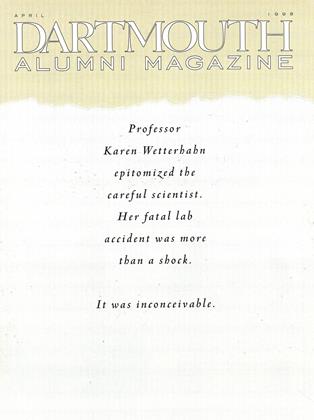Professor emeritus Neal Oxenhandler is a brave man, and his Looking for Heroes in Postwar France (University Press of New England, 1996; now in paperback) is a brave book. It is the story of how one man in the late twentieth century came to a fundamental spiritual insight through reading and teaching French literature.
Oxenhandler examines the impact of Camus Jacob, and Weil on his own evolution as a writer, scholar, and human being. The operative word throughout the book is awakening, as both an experience and a mission.
The emotional power of the book derives from the energy spent in baring his soul. But power also comes through the elegance of economy. Oxenhandler reveals the horrors of war, for example, by focusing on the face of a teenage German soldier he killed. He is on guard duty and challenges what seems a fleeting shadow, a vision. The vision becomes real as it approaches. Again, he challenges it. Nothing. Oxenhandler empties a clip into the night. He hears a "dark bundle" sag against a nearby
fence. None of his buddies respond. The following morning they find the young German: "His face was chalky, his teeth veined in blood." That single phrase captures the waste, the silence, the loneliness, and ironic selectivity of death more poignantly than those stock paragraphs that
count bodies blown to pieces. Oxenhandler brings to life events we all witnessed in varying degrees, examining them through the prism of a major intellect that sensitively summarizes a tumultuous period. Oxenhandler's method is akin to instruction at its highest level: no one can claim authenticity without an uncompromising assessment of one's strengths and weaknesses. He forces us to examine our life's trajectory. Although severe on himself, he refuses to condemn others. He is a very moral man. And this is also a very moral book that deserves a vast audience.
 View Full Issue
View Full Issue
More From This Issue
-
 Cover Story
Cover StoryThe Trembling Edge Of Science
April 1998 By Karen Endicott -
 Feature
FeatureSpiked Boots and the End of an Era
April 1998 By Edie Clark -
 Feature
FeatureA Change in the Weather
April 1998 -
 Feature
FeatureThe STREAMLINER DINER
April 1998 By Jane Hodges '92 -
 Article
ArticleThe Benefits of a College Town
April 1998 By Jeanhee Kim '90 -
 Class Notes
Class Notes1985
April 1998 By John MacManus
Article
-
 Article
ArticleGreeting to Mr. Tuck
June 1924 -
 Article
ArticlePRELIMINARY REPORT OF THE ALUMNI FUND FOR THE YEAR ENDING JUNE 30, 1927
AUGUST, 1927 -
 Article
ArticleSHOULD COLLEGES BE EDUCATIONAL INSTITUTIONS?
MARCH, 1928 -
 Article
Article1939 Commencement
May 1939 -
 Article
Article184 Withdrawals
April 1943 -
 Article
ArticleFranklin Smallwood '51 Aide to President Dickey
July 1957

